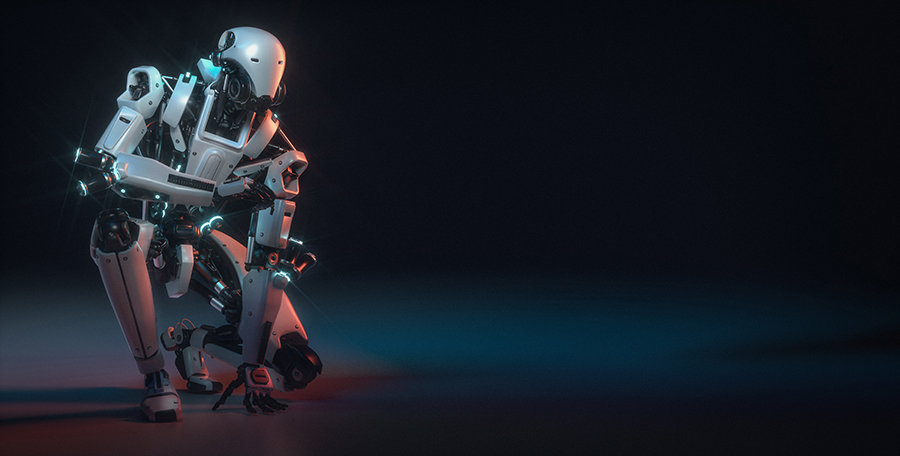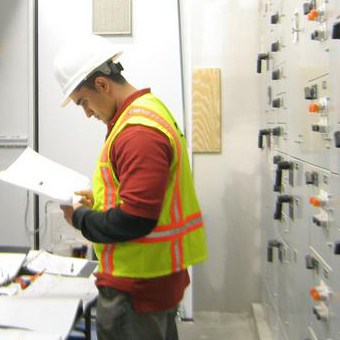Why do engineers follow a code of ethics? So you can soar safely through the skies from New York to Paris without a care in the world.
Because when you board that plane, you expect a smooth takeoff and a safe landing. You’re not sitting there thinking about the possibility of a plane crash, are you? No way, you’re too busy deciding which movie to watch and whether to choose chicken or fish with your meal.
Now, shift the lens a bit closer to home. Every day, we unknowingly place our trust in the hands of engineers – those unseen architects of our everyday life. The HVAC humming quietly, the water system providing a hot shower on a cold morning, the electricity lighting up your room, the kitchen appliances cooking up a storm – these everyday marvels are the result of engineers’ work.
But hold on. What if you discovered that some of these daily essentials were crafted by unethical engineers? Suddenly, your home becomes a potential hazard zone, right? That’s why engineers need an unwavering commitment to ethical practices.
Impact of engineering work on the modern world

Diving deeper, think about the world outside the four walls of your home. It’s almost like a grand symphony composed by engineers: roads intertwining like a lacework of asphalt, bridges arching across rivers, tunnels slicing through mountains, skyscrapers brushing the clouds, shopping malls buzzing with life, traffic signals choreographing the city’s rhythm. All these things we often take for granted are the handiwork of these unsung heroes.
In truth, every single piece of our modern world could be a lurking danger. But, thanks to the incredible engineers working their magic, we barely give it a second thought. However, it begs the question: What drives engineers to honor their ethical code?
#1 Painting a safer world
Our world is a vast canvas, and ethical engineering is the palette that adds vibrant hues of safety to it. From colossal projects to seemingly trivial tasks, every bit of engineering work can dramatically affect public safety.
Imagine you’re an engineer, given the task of designing a 240-volt panel in a forested area. It seems like a straightforward, simple job, right? But if you undersize the conductors connecting the load due to voltage drop, it could become a matchstick waiting to ignite a wildfire.
In regions prone to such disasters, this tiny miscalculation can have a catastrophic impact. That’s why each minute detail, each screw, each wire, and each panel matters. Every engineering decision has the potential to shape a safer world.

Important Note: I’d be remiss not to touch on the murky ethical waters of weapons engineering. It’s a debate that’s rife with controversy, and while it’s beyond the scope of this discussion, it underscores the need for engineers to constantly grapple with these ethical complexities.
#2 Unraveling the complex tapestry of engineering
At a first glance, engineering ethics might seem straightforward – crunch some numbers, design something secure, and you’re done. But trust me, it’s not as easy as pie.
The ethical landscape of engineering often presents dilemmas that blur the lines between right and wrong. Balancing various interests, especially when they’re at disagreements, can be like trying to juggle knives.
But there’s a North Star guiding us – the code of ethics. It helps us navigate these complex waters and strike the right balance. So, as engineers, we must constantly probe ourselves with some hard questions:
- Are our decisions inflicting harm on anyone?
- Are we trespassing on anyone’s rights?
- Are we breaking promises or betraying anyone’s trust?
Utilitarianism versus human rights in engineering projects

With utilitarianism, the mantra is that actions are right if they’re for the greater good. So, when I’m making decisions, I’ve got to consider how my work will affect everyone involved.
But here’s the catch: I also have a responsibility to uphold human rights. Honoring individuals’ rights is a key element of the ethics code. Take for instance, the right to life, which implies I can’t peddle misleading or harmful products or services.
Juggling these two can be like walking a tightrope. When aiming for the greatest good, there might be a few who miss out. Do I then compromise the rights of a few for the benefit of many? It’s a tough question with no easy answer.
However, I always strive to explore alternative solutions and welcome input from my team. Rushing decisions? That’s not my style.
Are engineers the pawns in engineering projects?
Every so often, it hits me that I’m a bit like a chess piece in this giant game of engineering. It’s like the big guns behind a project are moving me around the board, trying to maneuver my actions for their own advantage. It’s a reality that got me musing over the importance of understanding the players in this game, the stakeholders in every project I undertake.
I make it a point to unearth what makes them tick, and how they stand to gain from the fruits of my labor. Plus, I take time to ponder on the impact my decisions have on everyone involved in the project. The larger the task, the more folks there are nudging my actions this way or that. But hey, with a splash of resilience and unwavering commitment to the engineering code of ethics, pushing back is no sweat off my brow.
#3 Putting safety above all – the heart of the matter
Once I truly got the gist of the engineering code of ethics, it was like someone flipped a switch. My entire perspective towards my work took a turn, and now, I have a single, concrete goal: to keep folks safe while doing what I do best – engineering.
I’ve never shied away from calling out risky designs by others, acknowledging that we all share the responsibility of ensuring safety. It’s true, some engineers tiptoe around critiquing their peers’ work, not wanting to be the bad guy or ruffle any feathers. But if I sniff out a potential hazard, I raise the alarm, no second thoughts. The way I see it, stepping on someone’s toes is far better than someone stepping on a landmine.
More often than not, the engineer at the receiving end of my critique is thankful. No one wants their legacy to be a flawed design, right? I’m all for having as many eyeballs as possible on my work too. It’s like having a multi-layered safety net for catching errors, plus there’s always something new to learn.
Unethical engineering customers
What’s your nighttime ritual like? I bet it includes brushing your teeth, a habit drilled into us from childhood. Well, adhering to the engineering code of ethics is just as fundamental.
I’ve crossed paths with some shady customers in my time, who’ll do anything to cut corners and save a buck. But, not once have I allowed my integrity to take a hit for their sake. No matter who they are or what they’re promising.
And here’s a dose of reality: the customer won’t stick up for you if shit hits the fan. If you overstep that ethical boundary and something goes awry, they’ll hang you out to dry quicker than you can blink. They’ll feign ignorance, point fingers at you for not steering them clear of trouble. The worst part? They’re right. You’re the professional, and it’s up to you to make the right call.
So, why put yourself in such a pickle? Even if you escape unscathed or no one gets hurt, your conscience will bear the brunt of your actions.
#4 Protecting humanity from future technology

Imagine you’re living in the world of Terminator, complete with Skynet and a full-fledged robot apocalypse. Sounds crazy, huh? But in a couple of hundred years, who knows?
We probably won’t have to dodge bullets from androids, but think about the possibility of a rogue software wreaking havoc on our everyday luxuries and necessities. We’re already at a point where we can’t always figure out why an AI makes certain calls. Now picture a world where everything from our economy to energy supply is controlled by such software. If a glitch causes a week-long blackout, the panic button would be hit pretty quick. And if it lasts longer, well, things could get really ugly, really fast.
This is where our nifty engineering code of ethics comes in, having our backs, its key principle being to safeguard the public. We have to keep a sharp lookout as tech evolves at the speed of light.
Don’t get me wrong, I’m not advocating to press pause on AI’s progress. I’m all in. But, we have to ensure we are aware of its growth and potential risks. In a nutshell, we engineers have to be like the guardians of the galaxy, creating with the future safety of our species in mind.

Important Note: AI brings a heck lot of ethical quandaries to the table. If we think it’s cool to keep animals in cages because they’re not as smart as us, would it be fair to enslave something way smarter than us? Where’s the boundary? These are the questions that the engineering code of ethics will have to wrangle with someday.
Ethics is like the tortoise in the race with the tech hare
In my book, technology sprints ahead while ethics, laws, and regulations are panting in the rear. Rolling out new ethical guidelines is no piece of cake and usually comes around only after we’ve felt the sting of a tech’s negative impact, which, let’s face it, sometimes means loss of lives.
But here’s the kicker, we engineers can ease the burden of regulation by building safe stuff from the get-go. Meaning, we keep the public’s safety in mind when dreaming up the next big thing.
Now, that’s easier said than done and might put a bit of a damper on progress. But, think about the alternative. What if autonomous cars, fresh out of the lab and unregulated, cause a car-nage? They could end up gathering dust in some abandoned warehouse. To put things into perspective, take a look at how we humans were getting by just a hundred years ago or so.
This is why instilling the code of ethics in engineers is no joke. By doing this, we make sure technology moves forward without stumbling over unnecessary human-made hurdles.
“Why do engineers follow a code of ethics?” wrap up
As engineers, we’re like the superheros of the real world, looking out for the public. Our superpower? It’s all about knowing and living by the code of ethics.
Now, why on earth is that so crucial? Well, the more we get the hang of the code and stick to it, the more we can make life a breeze for everyone. We’re expected to play by the ethical rules just like we expect the food we buy from the supermarket to not be deadly. I mean, who wants to munch on some death-cap mushrooms for dinner, am I right?
By walking the ethical tightrope, we’re not just leveling up in our careers, but we’re also putting the pedal to the metal for progress and rocketing humanity into the future. It’s that ethical mindset that’s taken us from rubbing sticks together for fire to living in a mind-bending, tech-infused world.
Do you reckon all engineers are equally tied to the code of ethics? What do you think is the most important part of the code of ethics for engineers?

Author Bio: Koosha started Engineer Calcs in 2019 to help people better understand the engineering and construction industry, and to discuss various science and engineering-related topics to make people think. He has been working in the engineering and tech industry in California for well over 15 years now and is a licensed professional electrical engineer, and also has various entrepreneurial pursuits.
Koosha has an extensive background in the design and specification of electrical systems with areas of expertise including power generation, transmission, distribution, instrumentation and controls, and water distribution and pumping as well as alternative energy (wind, solar, geothermal, and storage).
Koosha is most interested in engineering innovations, the cosmos, sports, fitness, and our history and future.
